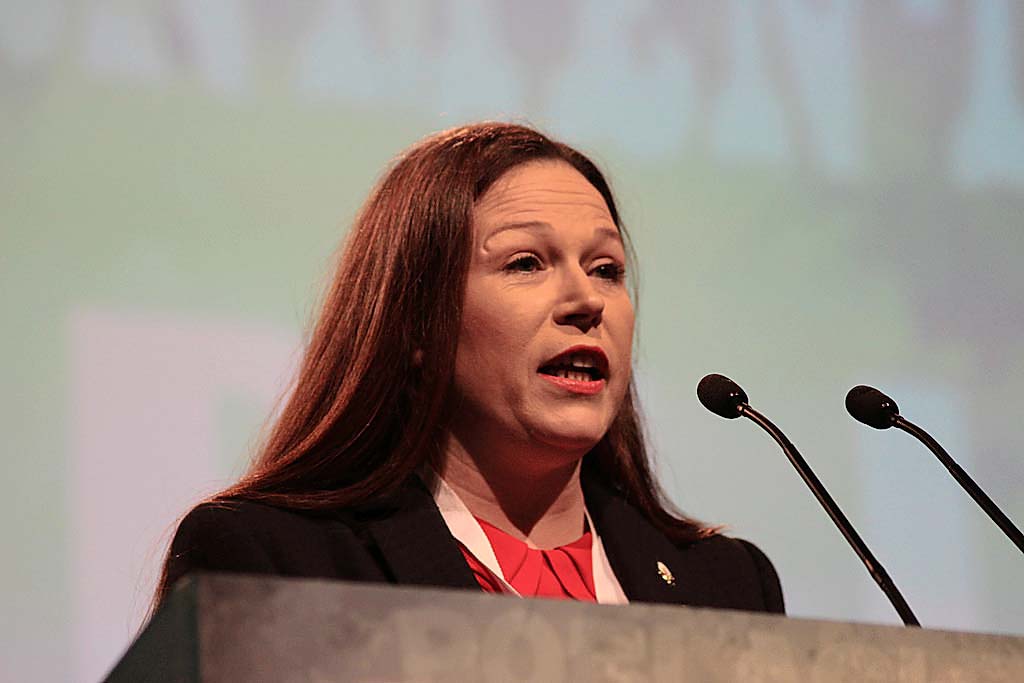Local TD in row over mental health services
Dublin People 17 Dec 2018
Callum Lavery
A GOVERNMENT Minister has hit back at criticism from a Northside TD in a row over mental health services.
Dublin Fingal TD Louise O’Reilly (SF) slammed “claims” made by Minister of State for Mental Health Jim Daly that psychiatrist vacancies in Child and Adolescent Mental Health Services (CAMHS) could be dealt with through Skype calls.
However, Minister Daly insisted the treatment he was proposing was not to be conducted via Skype but through software used in primary care centres.
Deputy O’Reilly, Sinn Féin’s health spokesperson, said telemedicine can supplement direct in person healthcare but it has major drawbacks and is not the solution to Ireland's problems.
“It is not a replacement,” she said. “Minister Daly cannot seriously be claiming that in a country with serious broadband problems that children in need of psychiatric care can be treated with Skype calls.
“In the Fingal area, there is over a two-year waiting list for mental health services with areas of Oldtown, Balscadden and the Bower in Balbriggan without broadband provision.
“We have in Balbriggan, a primary care centre which was developed at great expense but does not have sufficient staff to deal with the waiting lists experienced in child & adult mental health. Are we to refer these to Skype as a solution?”
“This ignores the fact that the psychiatrist expected to do this job is already overworked and struggling to deal with their local demand.
“Telemedicine was developed for very isolated areas in developing countries,” she added. “It is not the solution to the issues facing our mental health services in Fingal.
“If anything, it sounds like a surrender from a Government that talked big but have delivered nothing.”
Deputy O’Reilly added: “One sign the Government are serious about addressing psychiatric vacancies would be investment in training.”
Minister Daly said he was disappointed in Deputy O’Reilly’s comments.
“I have good time for Deputy O’Reilly and she usually contributes very sensibly to policy debates,” he said. “On this occasion, however, I cannot agree with her.
“In September I held a major conference on the use of tele-treatment in our mental health services.
“Its proposed use was endorsed by the College of Psychiatrists and practicing clinicians across the length and breadth of the country.
“Neither Deputy O’Reilly or myself are in a position to question these clinicians’ position on treatment methods.
“I am not proposing Skype to treat children with mental health needs.
“Tele-medicine is delivered through sophisticated digital platforms offering the highest quality of face-to-face communication through screens.
“It is delivered in clinical settings such as primary care centres, all of which have high quality broadband, I might add. Tele-medicine patients are supported by a multidisciplinary team on site.”
Minister Daly added: “If I had the misfortune of having to present with my child or a loved one to an acute hospital with a child in psychosis at 8pm, it would not take me too long to decide if I would like my child to wait for a consultant to arrive to the hospital the following morning, or to receive treatment from a consultant through tele-medicine, on the spot, with the support of the hospital doctors on site.”
Meanwhile, the Department of Health said it is working to increase Child and Adolescent Mental Health Services. It said the number of CAMHS referrals has increased by 3,000 additional service users or by 27 percent compared to 2017 and that improvements have been made, although the department acknowledged the lack of staff in the field.
“There are acknowledged staffing recruitment and retention issues across the health system, including the mental health service, especially consultants, that the HSE are addressing,” said a spokesperson. “However, the HSE has successfully recruited 114 assistant psychologists and 20 psychologists in primary care.”
The spokesperson added: “A priority is the increased use of technology in the delivery of mental health services, including introducing a pilot project to ascertain the merits of delivering care from a distance using technology and videoconferencing.”











